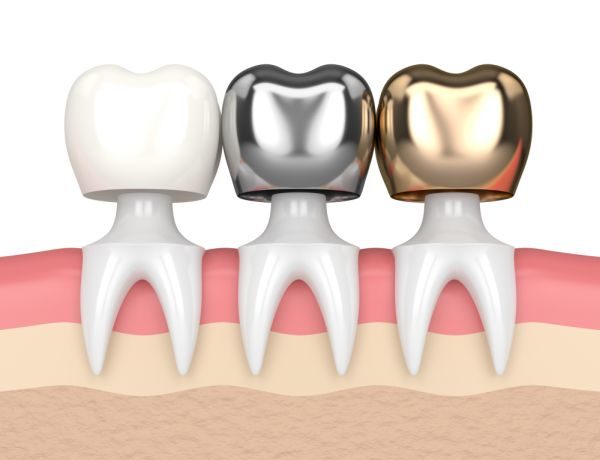Crowns, also known as caps, are a standard dental treatment covering decayed or damaged teeth to restore them to their natural shape and size. Crowns can be made from metal alloy or porcelain, depending on the patient’s needs and preference. Crowns are necessary when the decay of a tooth requires extensive restoration. A dentist will first assess whether or not you can repair your tooth with a filling before recommending a crown, which is more intrusive and permanent. A Hilliard crowns specialist can help you determine if a crown is right for you and your teeth. Here are some common problems you can correct with crowns.
Unsightly Teeth
You can repair chipped or discolored teeth with a crown. Dental crowns do not only cover the visible surface of your tooth but are bonded to your teeth to provide strength. Crowns are typically used to protect weakened teeth from further damage since they completely encase the tooth within its structure. Furthermore, crowns can cover teeth with root canal treatments performed on them.
Teeth With Large Fillings
If your tooth has a large filling that makes it look smaller than the rest of your teeth, crowns can be used to achieve regular sizes. Crowns are cemented over your tooth’s root and are therefore able to cover any noticeable drill holes or stains that may be present. This helps restore the regular appearance of your teeth and prevent any future staining or damage to that area.
Crowded Teeth
If your teeth are crowded, meaning there is not enough space for all of them in your mouth, then crowns can be used to straighten them. Crowns are cemented over the tooth and make it larger than its original size since they can cover any drill holes or stains present on that surface. Since you can make crowns with porcelain, you can paint them to look like natural teeth, which is helpful to achieve a uniform smile.
Severely Damaged Teeth
You can restore teeth that have broken or severely decayed with crowns. Crowns are cemented over your tooth to protect them from further decay and take the shape of your natural teeth. To accomplish this, a crown shrinks down in size once it is baked in an oven after it has been fitted to your tooth by a crown dentist. Crowns are also able to conceal root canal treatments when necessary.
Worn Down Teeth
Crowns also provide support to severely worn-down teeth. Crowns strengthen your tooth by covering any drill holes or stains that may be present on them with porcelain material, so they appear natural in color and shape. Crowns can also protect your teeth from further damage. They can cover old fillings, root canal treatments, or any other problem areas on your teeth.
In summary, crowns are necessary if your tooth is decayed or severely worn down. Crowns cover the tooth’s entire surface, which makes them more protective than fillings. Crowns can be made with metal alloy or porcelain, depending on the patient’s needs and preference. Crowns straighten crowded teeth, conceal root canal treatments, and cover stained or damaged teeth. Crowns can be used as a solution to any of the problems mentioned above, and it is vital to consider all your options before making a decision.













